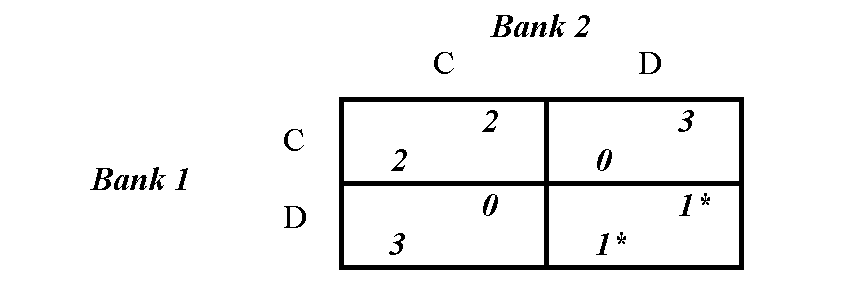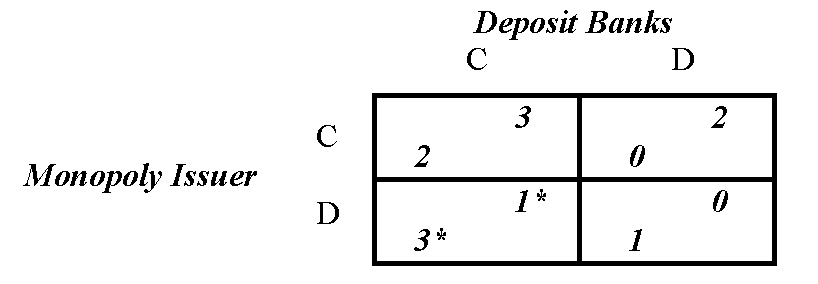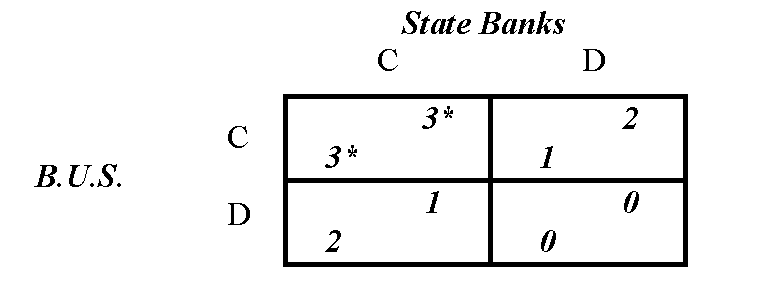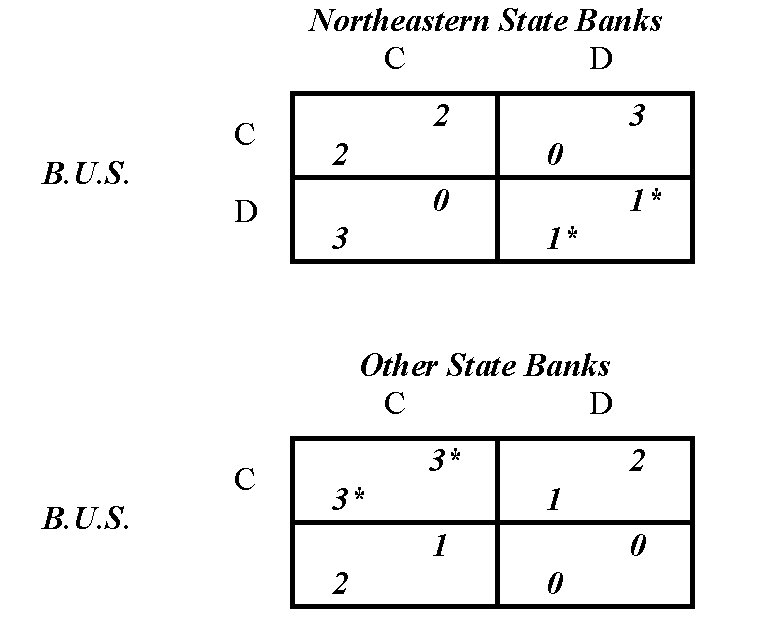I meant to do so weeks ago, but I only just got around to reading the little flurry of posts concerning NGDP targeting that was set off by John Taylor’s critical remarks on the topic. And now, despite the delay, I can’t resist putting-in my own two cents, because it seems to me that much of the discussion misses the real point of targeting nominal spending, either entirely or in part; what’s more, some of the discussion is just-plain nonsense.
Thus Professor Taylor complains that, “if an inflation shock takes the price level and thus NGDP above the target NGDP path, then the Fed will have to take sharp tightening action which would cause real GDP to fall much more than with inflation targetting.” Now, first of all, while it is apparently sound “Economics One” to begin a chain of reasoning by imagining an “inflation shock,” it is crappy Economics 101 (or pick your own preferred intro class number), because a (positive) P or inflation “shock” must itself be the consequence of an underlying “shock” to either the demand for or the supply of goods. The implications of the “inflation shock” will differ, moreover, according to its underlying cause. If an adverse supply shock is to blame, then the positive “inflation shock” has as its counterpart a negative output shock. If, on the other hand, the “inflation shock” is caused by an increase in aggregate demand, then it will tend to involve an increase in real output. Try it by sketching AS and AD schedules on a cocktail napkin, and you will see what I mean.
Good. Now ask yourself, in light of the possibilities displayed on the napkin, what sense can we make of Taylor’s complaint? The answer is, no sense at all, for if the “inflation shock” is really an adverse supply shock, then there’s no reason to assume that it involves any change in NGDP. On the contrary: if you are inclined, as I am (and as Scott Sumner seems to be also) to draw your AD curve as a rectangular hyperbola, representing a particular level of Py (call it, if you are a stickler, a “Hicks-compensated” AD schedule), it follows logically that an exogenous AS shift by itself entails no change at all in Py, and hence no departure of Py from its targeted level. In this case, although real GDP must in fact decline, it will not decline “much more than with inflation targetting,” for the latter policy must involve a reduction in aggregate spending sufficient to keep prices from rising despite the collapse of aggregate supply. A smaller decline in real output could, on the other hand, be achieved only by expanding spending enough to lure the economy upwards along a sloping short-run AS schedule, that is, by forcing real GDP temporarily above its long-run or natural rate–something, I strongly suspect, Professor Taylor would not wish to do.
If, on the other hand, “inflation shock” is intended to refer to the consequence of a positive shock to aggregate demand, then the “shock” can only happen because the central bank has departed from its NGDP target. Obviously this possibility can’t be regarded as an argument against having such a target in the first place! (Alternatively, if it could be so regarded, one could with equal justice complain that similar “inflation shocks” would serve equally to undermine inflation targeting itself.)*
But lurking below the surface of Professor Taylor’s nonsensical critique is, I sense, a more fundamental problem, consisting of his implicit treatment of stabilization of aggregate demand or spending, not as a desirable end in itself, but as a rough-and-ready (if not seriously flawed) means by which the Fed might attempt to fulfill its so-called dual mandate–a mandate calling for it to concern itself with both the control of inflation and the stability of employment and real output. And this deeper misunderstanding is, I fear, one of which even some proponents of NGDP targeting occasionally appear guilty. Thus Scott Sumner himself, in responding to Taylor, observes that “the dual mandate embedded in NGDP targeting is not that different from the dual mandate embedded in the Taylor Rule,” while Ben McCallum, in his own recent defense of NGDP targeting, treats it merely as “one way of taking into account both inflation and real output considerations.”
To which the sorely needed response is: no; No; and NO.
We should not wish to see spending stabilized as a rough-and-ready means for “getting at” stability of P or stability of y or stability of some weighted average of P and y: we should wish to see it stabilized because such stability is itself the very desideratum of responsible monetary policy. The belief, on the other hand, that stability of either P or y is a desirable objective in itself is perhaps the most mischievous of all the false beliefs that infect modern macroeconomics. Some y fluctuations are “natural,” in the sense meaning that even the most perfect of perfect-information economies would be wise to tolerate them rather than attempt to employ monetary policy to smooth them over. Nature may not leap; but it most certainly bounces. Likewise, some movements in P, where “P” is in practice heavily weighted in favor, if not comprised fully, of prices of final goods, themselves constitute the most efficient of conceivable ways to convey information concerning changes in general economic productivity, that is, in the relative values of inputs and outputs. A central bank that stabilizes the CPI in the face of aggregate productivity innovations is one that destabilizes an index of factor prices.
We shall have no real progress in monetary policy until monetary economists realize that, although it is true that unsound monetary policy tends to contribute to undesirable and unnecessary fluctuations in prices and output, it does not follow that the soundest conceivable policy is one that eliminates such fluctuations altogether. The goal of monetary policy ought, rather, to be that of avoiding unnatural fluctuations in output–that is, departures of output from its full-information level–while refraining from interfering with fluctuations that are “natural.” That means having a single mandate only, where that mandate calls for the central bank to keep spending stable, and then tolerate as optimal, if it does not actually welcome, those changes in P and y that occur despite that stability.
*Over at TheMoneyIllusion Bob Murphy remarks that this part of my criticism of Taylor is “too glib.” He’s right: central bankers can’t be faulted for failing to abide by a rule when that failure stems from their having failed to anticipate what is, after all, a “shock” to demand. But the main point of this part of my criticism is simply that, understood as referring to the consequences of an AD shock, Taylor’s criticism is, not a criticism of NGDP targeting as such, but a criticism of any sort of nominal level targeting that doesn’t allow “bygones to be bygones” when it comes to shock-based departures from the level target (12–1‑2011).




